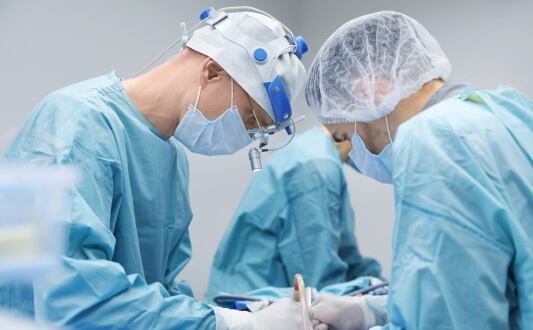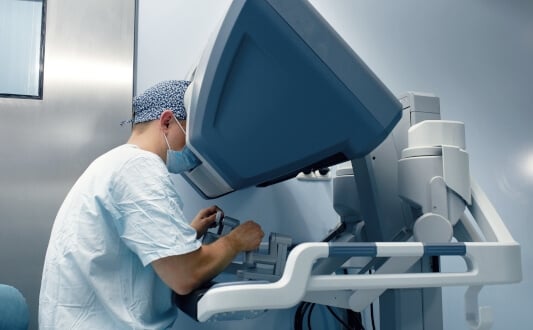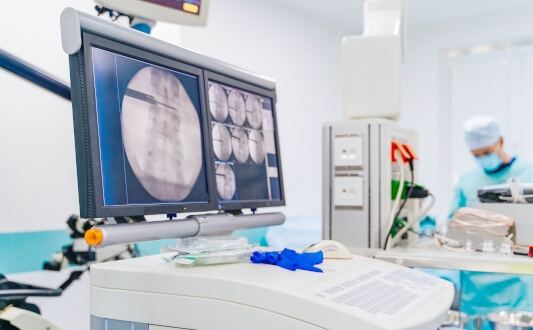Medical Blog About Treatment Abroad
Welcome to our medical blog – it is dedicated to empowering patients with knowledge about global healthcare! We created this platform with the intention to bridge the gap between patients and the medical innovations available globally.
What's Inside: Discover new and rare methods in oncology, immunology, heart surgery, neurosurgery, and other medical fields! Our health travel insights show how medical journeys open new possibilities with advanced treatments unavailable locally, including specialized cancer care abroad.
Who Benefits: This resource is for patients and their families who seek new treatment methods and explore options at leading international hospitals. Those who want to make informed healthcare decisions beyond borders.
Why Read: Booking Health experts provide verified information through patient-friendly articles – they translate complex medical advances into accessible info. Stay current with the latest developments in global healthcare and discover how international medicine can transform treatment outcomes!
Browse our latest articles and take the first step toward better health outcomes!
New in medicine abroad - page 2
 Immunotherapy treatment for leukemia in Germany
Immunotherapy treatment for leukemia in Germany
In recent years, doctors in developed countries have increasingly used immunotherapy treatment for leukemia. Healthcare professionals in Germany use innovative drugs that help cope with even refractory and relapsing forms of leukemia. Immunotherapy is mainly used for acute lymphocytic leukemia.
 Cryosurgery: high technologies of low temperatures
Cryosurgery: high technologies of low temperatures
Cryosurgery is a method of tissue destruction using cold. It is used in many areas of medicine, such as urology, gynecology, oncology, cardiology, otolaryngology, ophthalmology, and dermatology. Treatment with cryosurgery is becoming increasingly safe and effective as equipment for this procedure improves.
 Groundbreaking ways of ALS treatment
Groundbreaking ways of ALS treatment
ALS or amyotrophic lateral sclerosis (Lou Gehrig's disease) is a pathology that causes the death of motor neurons. Although ALS is often considered to be a muscular disease, it is actually not. In fact, this is a neurological disease. Only recently scientists began to understand how ALS develops. Since the causes of ALS had been unknown for a long time, ALS treatment was reduced to symptomatic therapy.
 Opdivo. New Treatment of the Lung Cancer
Opdivo. New Treatment of the Lung Cancer
No operations or chemotherapy needed? Is that possible? The new drug Opdivo will soon make treatment of the advanced stage melanoma available for the patients all over the world! Unfortunately, European countries face this kind of disease more frequently. Statistics leave much to be desired: lung cancer brings great fear...
 Rafaelo® procedure for the treatment of hemorrhoids in Germany
Rafaelo® procedure for the treatment of hemorrhoids in Germany
The Rafaelo® procedure offers a minimally invasive high success-rate hemorrhoid treatment in Germany, using radiofrequency energy to shrink hemorrhoidal tissue. Ideal for patients with grade II-III internal hemorrhoids, it provides quick relief with minimal pain and rapid recovery. The procedure takes only 15-20 minutes, requires no general anesthesia, and allows for a quick return to normal activities.
 Innovations in the treatment of children leukemia
Innovations in the treatment of children leukemia
Leukemia is a deadly dangerous oncological disease that often attacks children unlike other cancer types. This pathology is impossible to treat with surgery as there is no a single localized tumor that can be removed. Malignant cells quickly spread throughout the body affecting the nearby and distant tissues and organs.
 Robot-assisted treatment of esophageal diseases: Da Vinci system
Robot-assisted treatment of esophageal diseases: Da Vinci system
Esophageal surgery is a very complex area of medicine because this organ is located simultaneously in the neck, chest, and abdomen. Most esophageal surgeries are traumatic and unsafe. However, with the help of the surgical system Da Vinci, surgeons can perform surgical interventions of any complexity with a minimally invasive surgical approach instead of large incisions.
 Spine surgery using the Globus Excelsius GPS computer-assisted robotic device
Spine surgery using the Globus Excelsius GPS computer-assisted robotic device
Herniated discs in the lumbar spine, spinal injuries, and other conditions may require surgery to stabilize the spinal column. Spine surgery is complex and unsafe for patients. You should take advantage of the services of the best spine surgeons to get reliable results and avoid complications. If you have any spinal injuries, you can have your treatment in Germany.

